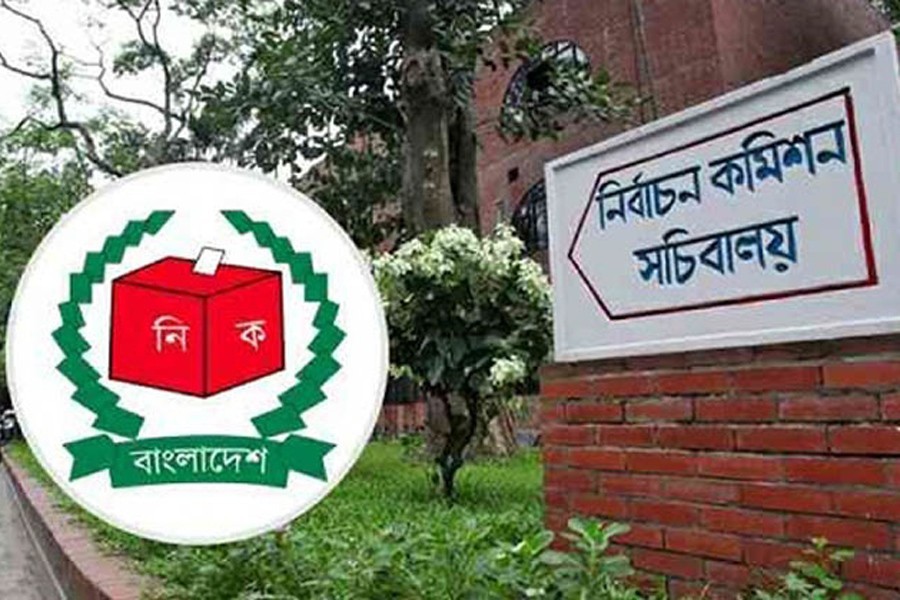The Election Commission has gone into high gear to prepare for the upcoming 11th national election.
The commission has identified 90 tasks to finish in two phases before it announces the election schedule.
According to the existing constitution, election for the 11th parliament must be held within 90 days of the expiry of the 10th parliament. Accordingly, the next general election will be held between Oct 30 and Jan 28.
The EC may announce the schedule in November to hold the election at the end of December, said Chief Election Commissioner KM Nurul Huda.
The election date will be determined in a commission meeting taking into account the schools’ annual exams and Biswa Ijtema, the biggest religious congregation in the country.
EC officials are preparing to present a draft ‘action and implementation plan to conduct the 11th national election” to the commission in September taking all issues into account.
COUNTDOWN TO THE POLLS
Countdown to the upcoming polls will start on Oct 30 as the first session of the current parliament was held on Jan 29, said EC Secretary Helal Uddin Ahmed on Thursday.
“We are prepared to announce the election schedule in the first week of November. The commission is yet to determine the date but we assume that the national election will be held at the end of December or in the beginning of January.”
The first phase of 90 tasks identified by the commission includes a list of polling centres, finalising the voter list, preparing transparent ballot boxes, purchasing necessary accessories, preparing panel of polling officers, training of trainers, preparing election manual and printing nomination paper, said EC officials.
These tasks are expected to be finished by October and the second phase of preparation will begin after the election schedule is announced, they said.
The voter list and the draft list of polling centres have been prepared while purchase order for accessories has been given, Ahmed briefed media.
The commission will discuss the overall progress on these issues, polling officers, law and order, and funds related to the polls.
TASKS FOLLOWING ELECTION SCHEDULE
The second phase of tasks after the announcement of election schedule will include issuing circulars for returning and poling officers’ recruitment, sending directives to cabinet and other ministries, ensuring code of conduct, formation of election probe committee, appointing executive and judicial magistrate, distributing election accessories at the field level, and meeting with law enforcement agencies, according to officials of EC’s election management and coordination wing.
Ballot papers will be printed after receiving the final list of contestants. The commission will have ‘special review meetings’ with the home ministry, top officials of law enforcement agencies, returning officers and field officials.
A ‘timeframe’ will be fixed to deploy law enforcement agencies and the EC will request the Armed Forces in case the army is deployed during elections.
“The army was deployed in previous elections but the EC is yet to decide on the deployment. We’ll decide considering the overall situation before the elections,” said the CEC.
Article 126 of the constitution allows the EC to appoint army personnel along with the law enforcement agencies to conduct a free, fair and peaceful election. The army was on the ground for 15 days during the 10th parliamentary election.
There will be around 600,000 polling officials to conduct the elections in more than 40,000 polling centres during the 11th national election, said EC officials.
The number of voters will be around 105 million, reports UNB.
Each polling centre will have 15-18 security personnel. Around Tk 6.75 billion is expected to be spent in the upcoming general election.


